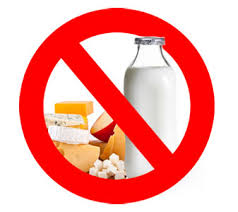Call Today to Schedule an Appointment: 212-319-5282
Milk Allergies in Babies
Milk Allergies in Babies: What are Your Options?
 Having to deal with a milk allergy at a time when your baby needs it the most can be a challenge. Milk free formulas are not as popular as traditional ones and you’ll have to do a little bit of leg work to find alternative solutions. While they aren’t as common however, it doesn’t mean that they can’t be found if you know where to look. In this article, we’re going to give you a few options in case your child is suffering from a milk allergy.
Having to deal with a milk allergy at a time when your baby needs it the most can be a challenge. Milk free formulas are not as popular as traditional ones and you’ll have to do a little bit of leg work to find alternative solutions. While they aren’t as common however, it doesn’t mean that they can’t be found if you know where to look. In this article, we’re going to give you a few options in case your child is suffering from a milk allergy.
Go with Breastmilk
Breast milk is usually the best option if your child has been diagnosed with a cow milk allergy. For one, breast milk has the perfect balance of nutrients for your baby and boosts their immune system. Breastfeeding has also been correlated with lower incidences of sudden infant death syndrome.
Most experts will recommend breastfeeding your children for at least 6 months, with one year being the optimal length. The World Health Organization even recommends breastfeeding your child until they reach the age of two.
Look at Formula Options
If breastfeeding is not an option for you, there are non-dairy choices out there. But know that just because they don’t contain cow milk, doesn’t mean they won’t cause a reaction in your child.
Soy based formulas are a prime example. While they are completely derived from soy protein, between 8 and 14 percent of babies will have a reaction to it. Another option is heavily hydrolyzed solutions. While they are derived from milk, the protein is so broken down that the chances of them causing a reaction are diminished.
But if your child can’t tolerate a hydrolyzed formula, you could also go for formulas made from amino acids. These formulas are made from proteins and amino acids broken down to their simplest form and are usually less likely to cause a reaction.
Check if it’s Truly an Allergy
Making the distinction between intolerance, simple indigestion, and a full-on milk allergy can be complicated when you don’t know the difference between each. Sometimes, you could misdiagnose something as simple as an upset stomach as an allergy.
Make sure that you keep a journal of your baby’s symptoms and eating habits. If you breastfeed, you should also make sure that you record everything that you eat and whether it’s having an impact on your baby. You should also check your family history and see if food allergies run in your family.
If you think your child may actually be suffering from a milk allergy, consult an allergist so they can perform a diagnosis and provide some solutions. Contact us today to schedule an appointment with the best allergist in New York.
Serving all of New York City and the Tri State Area including Zip Codes: Top Allergist NYC Midtown, Chelsea and Clinton: 10001, 10011, 10018, 10019, 10020, 10036 | Gramercy Park and Murray Hill: 10010, 10016, 10017, 10022 | Greenwich Village and Soho: 10012, 10013, 10014 | Lower Manhattan: 10004, 10005, 10006, 10007, 10038, 10280 | Lower East Side: 10002, 10003, 10009 | Upper East Side: 10021, 10028, 10044, 10128 | Upper West Side: 10023, 10024, 10025
